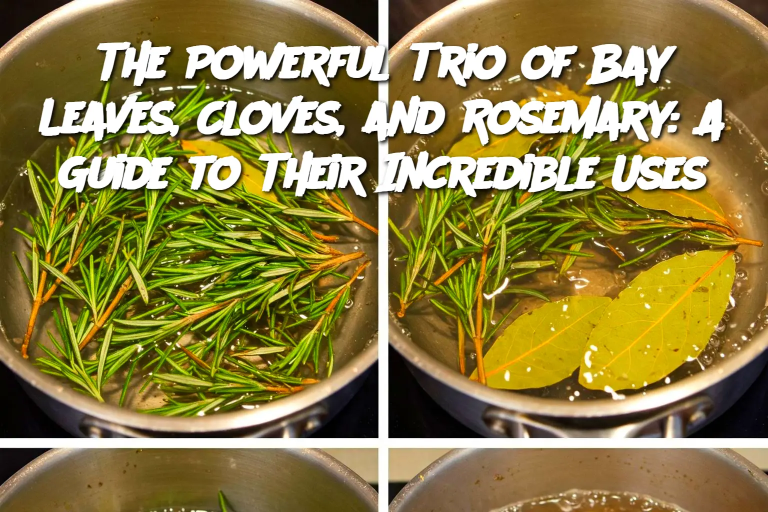ADVERTISEMENT
Spiced Tea Blend: Combine bay leaves, cloves, rosemary, cinnamon sticks, and a touch of ginger to make a warming, aromatic spiced tea blend.
Vegetarian Options:
Add a combination of bay leaves, cloves, and rosemary to vegetable soups, pasta dishes, and even roasted vegetables to infuse them with depth and warmth.
Scented Potpourri: Instead of cooking, these herbs and spices can be used in homemade potpourri. Bay leaves, cloves, and rosemary can fill your home with a warm, earthy fragrance, especially in the fall and winter.
Frequently Asked Questions:
Q: Can I use fresh rosemary instead of dried rosemary?
A: Yes, fresh rosemary can be used in place of dried. Just be sure to use slightly more fresh rosemary than dried, as the dried variety is more concentrated. Fresh rosemary adds a more vibrant, green flavor.
Q: Do bay leaves need to be removed before serving?
A: Yes, bay leaves should be removed before serving. While they add great flavor during cooking, they are tough and not meant to be eaten.
Q: How long do cloves last?
A: Whole cloves can last for up to 1-2 years when stored in a cool, dark place. Ground cloves have a shorter shelf life of around 6 months.
Q: Can I use bay leaves in desserts?
A: Absolutely! Bay leaves can be used in sweet dishes like custards, rice puddings, and even in poached fruit to add a subtle, aromatic flavor.
Q: Can I use ground cloves instead of whole ones?
A: Yes, ground cloves can be used instead of whole cloves. However, use sparingly as ground cloves are more concentrated than whole cloves.
ADVERTISEMENT
